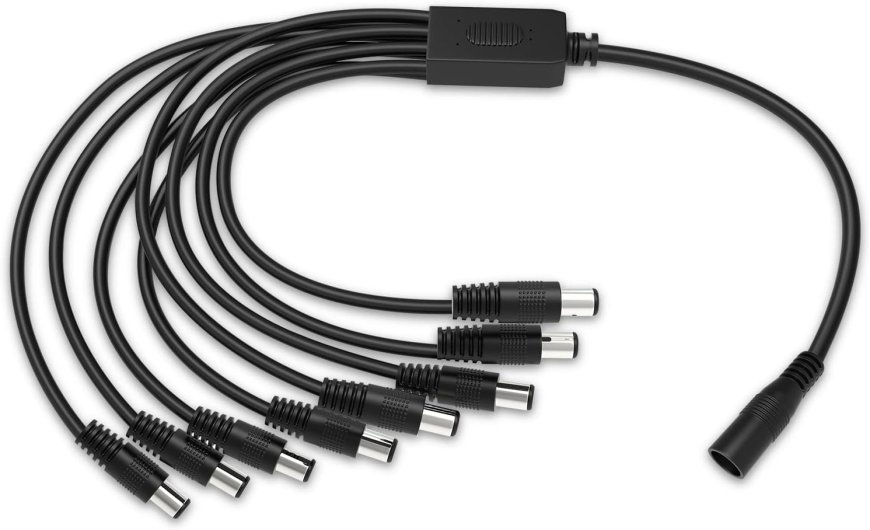BNC Connector: The Backbone of Reliable Connections

A BNC connector is a vital component in various electronic and communication systems. Known for its compact design and quick coupling mechanism, it is widely used in RF, video, and test equipment applications. Understanding its features, types, and uses helps in making informed decisions about its implementation.
What is a BNC Connector?
The Bayonet Neill-Concelman (BNC) connector is a miniature RF connector developed for coaxial cables. It provides a secure, quick connect and disconnect mechanism through a simple bayonet-style locking system. Typically, it is used for frequencies below 4 GHz and ensures low signal loss.
The BNC connector is composed of a center pin for the signal conductor and an outer metal casing for the ground. The unique locking mechanism makes it durable and resistant to accidental disconnections, making it highly reliable in both consumer and professional applications.
Features of BNC Connectors
Compact Design
The small size of a BNC connector makes it suitable for tight spaces. Its ease of use enhances its functionality across various setups, from compact devices to large-scale communication systems.
High Signal Integrity
BNC connectors maintain excellent signal integrity by minimizing loss and interference. This makes them ideal for applications requiring precise data transmission, such as in video and RF signals.
Versatility
These connectors are compatible with multiple cable types and work in applications across various industries, including telecommunications, broadcasting, and testing equipment.
Types of BNC Connectors
Understanding BNC connector types is essential for selecting the right one for your application. Each type is designed to meet specific requirements and cable types.
Standard BNC Connectors
Standard BNC connectors are the most common type. They are widely used in video systems, RF applications, and electronic test equipment. Designed for 50-ohm or 75-ohm cables, they are suitable for frequencies up to 4 GHz. These connectors are reliable and easy to install, making them a go-to option for general-purpose use.
Miniature BNC Connectors
Miniature BNC connectors are smaller and designed for compact applications where space is a constraint. They provide the same performance as standard BNC connectors but in a smaller form factor. These connectors are frequently used in broadcasting and medical imaging systems.
Reverse Polarity BNC Connectors
Reverse polarity BNC connectors, or RP-BNC, have reversed inner and outer conductors. This design prevents accidental mismatches in systems that require specific polarization. They are commonly used in wireless communication systems to maintain system integrity.
High-Density BNC Connectors
High-density BNC connectors are used in applications that demand multiple connections in limited space. They are typically found in video and surveillance systems where space-saving designs are necessary.
Weatherproof BNC Connectors
Weatherproof BNC connectors are designed for outdoor applications. They feature enhanced sealing to protect against environmental factors like moisture and dust. These connectors are ideal for use in antennas, security systems, and outdoor test setups.
Applications of BNC Connectors
Telecommunications
BNC connectors are extensively used in telecommunications for signal transmission. Their ability to maintain signal integrity makes them ideal for connecting RF devices, antennas, and base stations. Their secure locking mechanism prevents accidental disconnections, ensuring continuous communication.
Video Surveillance Systems
In video surveillance systems, BNC connectors are the standard choice for transmitting video signals. Their compatibility with coaxial cables ensures high-quality video output without interference. Additionally, their quick connect and disconnect feature simplifies installation and maintenance.
Broadcasting
In the broadcasting industry, BNC connectors play a vital role in audio and video signal transmission. They are used in cameras, mixers, and other broadcasting equipment to ensure seamless data transfer. Their low signal loss and high reliability make them indispensable in live broadcasting setups.
Test and Measurement Equipment
BNC connectors are integral to oscilloscopes, signal generators, and other test equipment. They provide reliable connections for accurate measurements and data analysis. The connector’s robust design ensures long-term performance, even in demanding testing environments.
Medical Devices
In the medical field, BNC connectors are used in imaging systems and monitoring equipment. Their precision and reliability are critical for ensuring accurate diagnostics and patient safety.
Selecting the Right BNC Connector
Choosing the right BNC connector depends on several factors. Understanding these considerations ensures optimal performance in your application.
Frequency Range
The operating frequency of the BNC connector should match your system's requirements. Standard BNC connectors work well for frequencies up to 4 GHz, while specialized versions may handle higher frequencies.
Cable Compatibility
Ensure the connector is compatible with your cable’s impedance (50-ohm or 75-ohm). Mismatched impedance can lead to signal loss and degraded performance.
Environmental Conditions
For outdoor or rugged applications, weatherproof or durable connectors are necessary. These are designed to withstand environmental factors such as moisture, dust, and temperature extremes.
Connector Type
Select the connector type based on your system requirements. Whether you need standard, miniature, or high-density versions, choosing the right type ensures reliable operation.
Manufacturer Quality
Choose connectors from reputable manufacturers to ensure durability and performance. High-quality connectors provide better signal integrity and last longer, reducing the need for frequent replacements.
Conclusion
BNC connectors are indispensable in modern electronic and communication systems. Their versatility, reliability, and compatibility with various applications make them a preferred choice in industries ranging from telecommunications to medical devices. By understanding the BNC connector types and selecting the right one for your application, you can ensure efficient and reliable system performance.
What's Your Reaction?

























